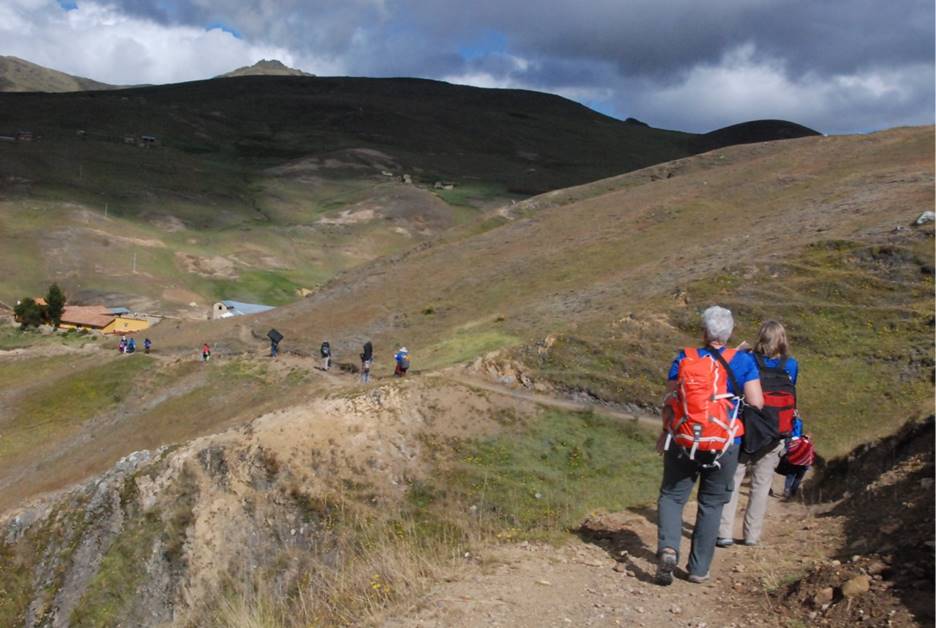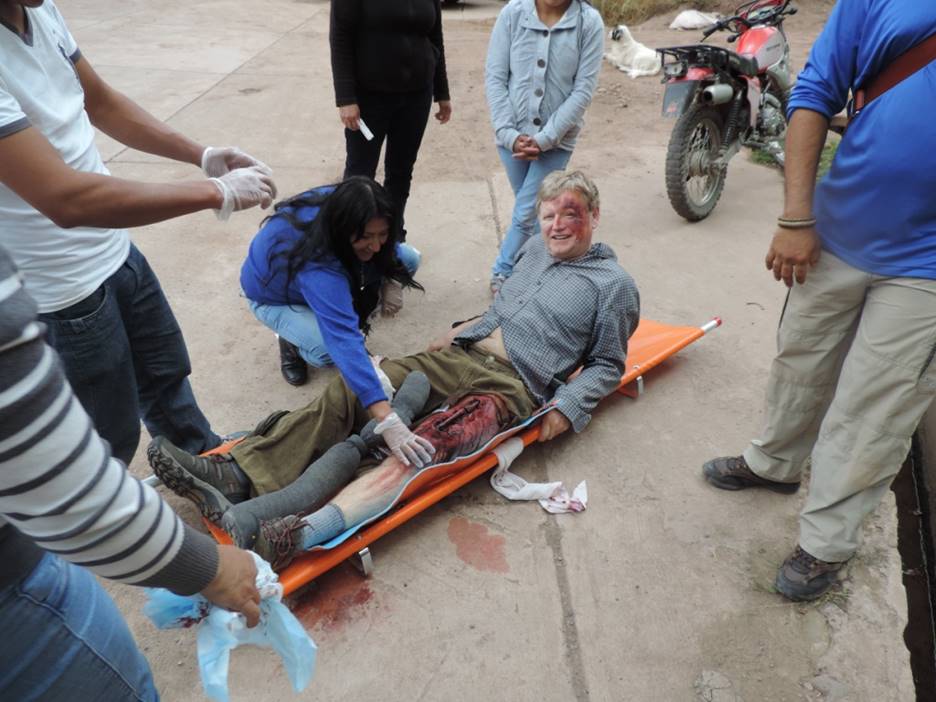Vocational Training Team: Peru
This is a story of thanks. First of all, thank you to the donors to Rotary who made this all possible: the Rotary Clubs of Coquitlam, Port Moody, Chilliwack, Sedro-Wooley WA, and Delta!
From Apr. 8 - 29, 2016 a team of Rotarians and other professionals travelled to Pisac, Peru to conduct an educational medical out-reach project to 7 remote, high Andean villages. This was funded through a Rotary International Vocational Training Team Global Grant and contributions from the above noted clubs.
On the ground support and direction was provided by DeseaPeru - a local clean water and health promotion program started by two BC residents, Sandra McGirr & Sandy Hart, originally from Tatla Lake BC. The training was specific to 4 areas; medical, physiotherapy, psychological, and first aid. The teams consisted of 2 MD’s, 2 Nurses, 1 Physiotherapist, 2 Counsellor/Psychologists, 2 First Aid Instructors and 1 Team Coordinator.
Work began in early 2015 when a proposal was made by Dr. Kathleen Ross to the Rotary Club of Coquitlam to support the work she had begun in the previous year to partner with an organization in Lamay, Peru - Desea (www.deseaperu.org). This organization has been carrying on services to the indigenous Quechua people in the Sacred Valley of Peru for the past 9 years.
One major part of the work they have done was to set up Qhalis - the Quechua word for community health workers - in each of the villages they serve. The Coquitlam Rotary Club strongly supported the project and other local Rotary clubs were invited to join the campaign.
A proposal was put forward to Rotary International for grant funding for a Vocational Team Training project under the guidance of Chilliwack Rotarian, Mike Hamel and Coquitlam Rotary’s Dr. Ron Warneboldt - International Program Chair.
Medical supplies were purchased or donated - by local organizations such as Rotary World Help Network, and pharmacists Tan Ho and Lap Wu of the Austin Pharmacy in Coquitlam and the team departed for the project loaded down with 23 bags (each weighing 50 lbs.) of medications, equipment and supplies. There were a few concerns about crossing international borders with some of these supplies but this proved to be unfounded as all officials seemed to understand the nature of the project and passage was made without incident.
The team set up accommodations in Pisac, Peru and after a full team meeting with the Rotary volunteers and the Desea staff on Apr. 11, work started in the villages. Each morning meant rising at around 0600 to prepare for anywhere from a 1 - 2 ½ hour journey by car to villages located at altitudes of 4,300+ Metres. The air gets thin up there! Supplies, in some cases had to be trekked in - down mountain paths to the village, up to a kilometre away. The only problem was, they had to be hauled back out!
 |
The whole program took on a different aspect due to language barriers, many of the villagers do not speak Spanish or English but only their native language, Quechua. Most of the Rotary volunteers did not speak Spanish and certainly not Quechua so the whole dialogue needed to be translated from English to Spanish to Quechua and back again to convey many of the messages.
At the end of each day, the team packed up the supplies etc. and made the trip back to base, each evening coming to an early end to be ready for the next days sortie.
A full week of the program was dedicated to First Aid training for local health care workers, DeseaPeru staff and the Qhalis. This training was conducted by Matthew Witt - local Firefighter in Surrey and Cristian Toribio - Panamian Firefighter, both First Aid Instructors with the Red Cross and members of FRITA - Fire Rescue International Training Association. With the help of a local artist and some theatrical make up and movie props, life-like and vivid scenarios were enacted dealing with situations that present themselves in the lives of people in remote areas.
 |
There is no functional emergency medical system for these communities, ambulances either do not exist or are hours away and evacuation can be a matter of hiking to a hilltop to get cell phone coverage in order to call and arrange for transportation. Recognizing a life threatening situation and acting quickly and appropriately is crucial.
This means the Qhalis need to know important basic life support skills and have the confidence to triage, make decisions, and direct members of the community to act. This is not easily done in a long subjugated indigenous and male dominated society, but we believe we made important steps in empowering these women to take that responsibility in their communities.
They say, all work and no play makes Jacks and Jills dull. Fortunately, the team did get some time off to enjoy some of the cultural and historic aspects of Peru; not the least of which is Machu Picchu! This is a UNESCO World Heritage Site - birthplace of the First Inca or final resting place of the Last Inca? - it lives up to its billing as a must-see site on the planet.
For those of us having the tremendous privilege to travel to this remarkable part of the world; to visit with, work with and hopefully be of service to the Quechua people - the last remaining Incans - we will be forever grateful.
If you require further information about how you can support the efforts of Rotary in your community and their work in the world, please visit:
https://www.rotary.org/en/member-center/join-rotary-and-make-difference
or call Terry Colton: 604-521-488
